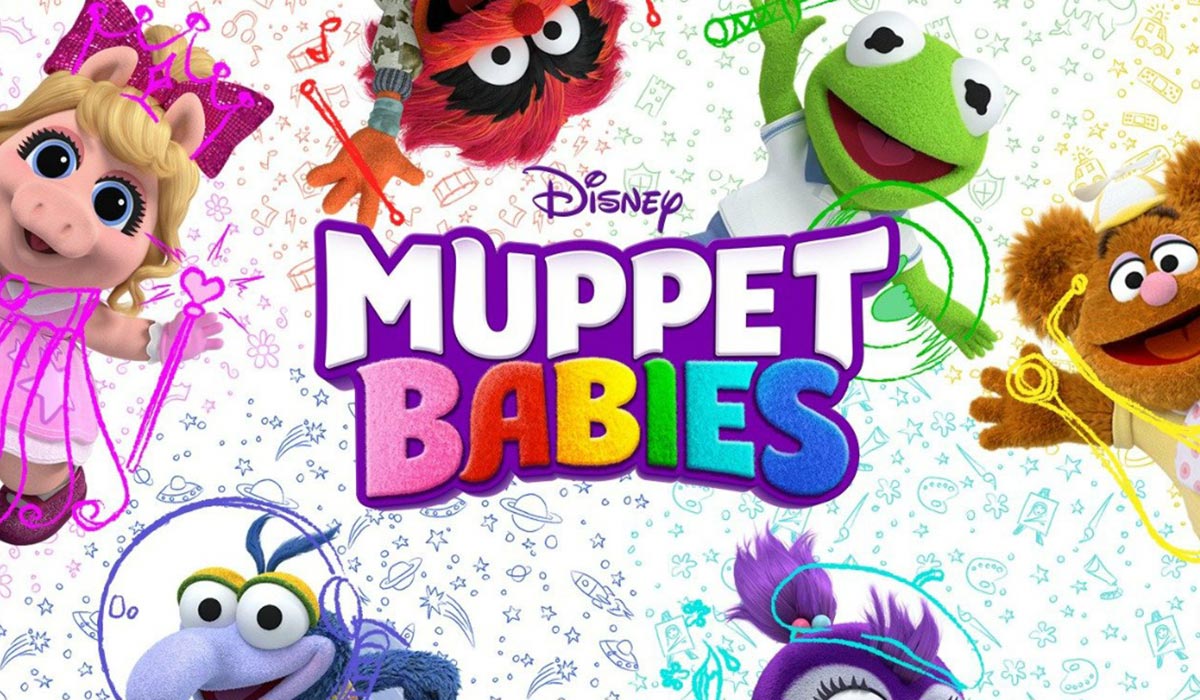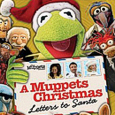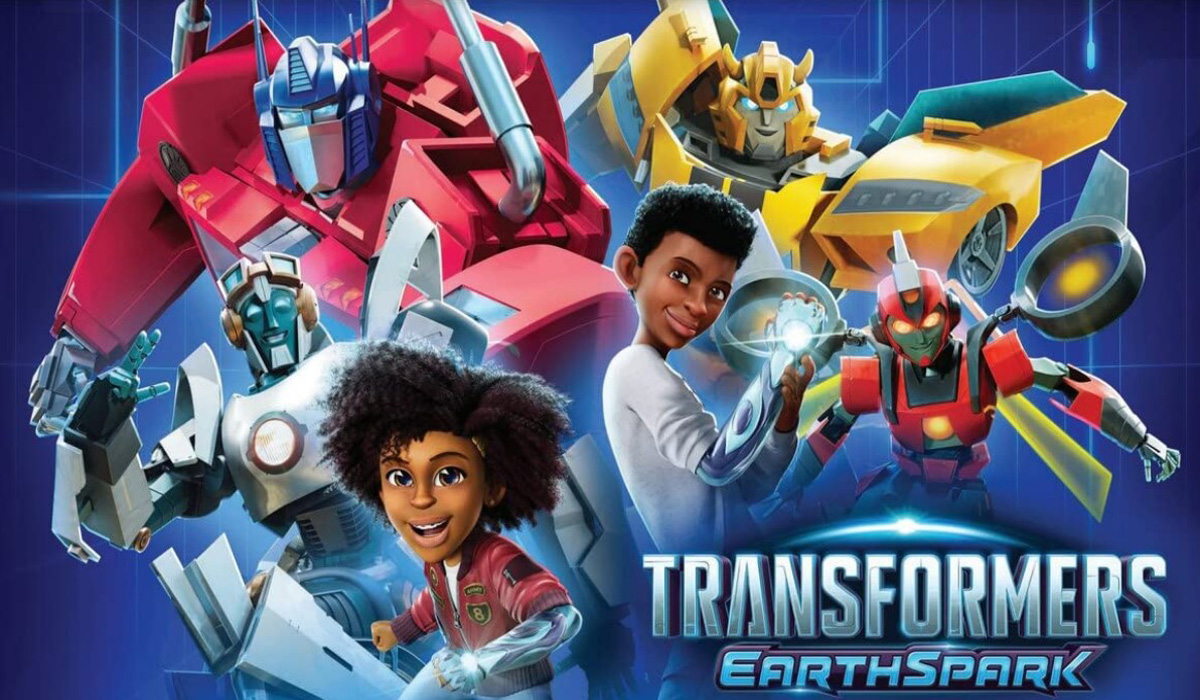
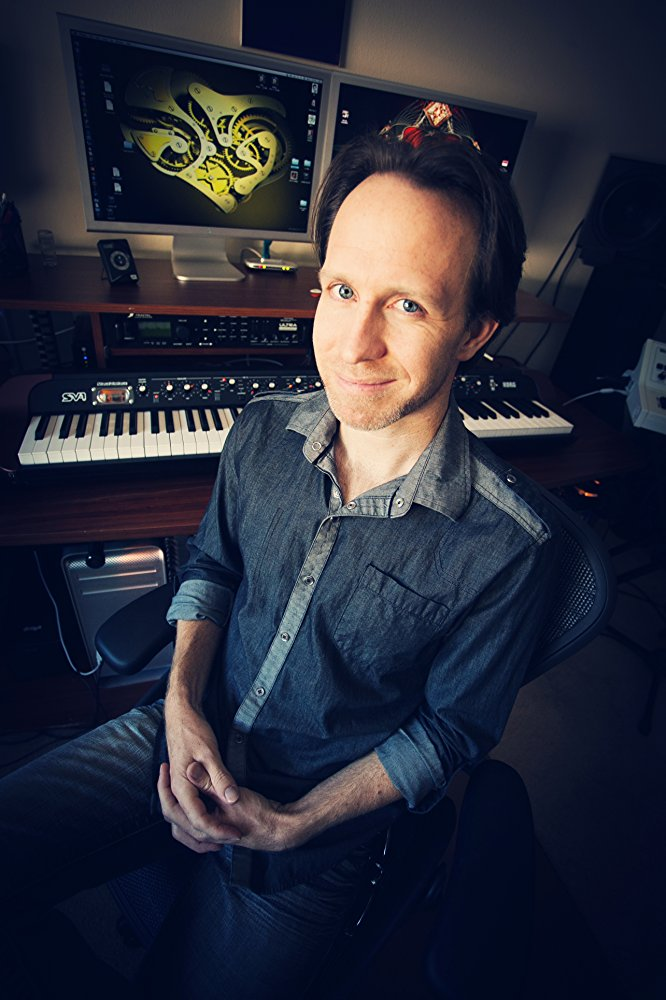
Almost 30 years after the Muppet Babies first won the hearts of kids and families around the world, Disney Junior’s reimagined television series, which premiered earlier this year, chronicles the hilarious playroom antics of a young Kermit the Frog, Piggy, Fozzie Bear, Gonzo and Animal – plus a brand-new Muppet Baby, Summer Penguin.
Music plays an important role in the series, with almost every episode featuring original songs ranging in different musical styles from 70s disco to contemporary, written and recorded by series’ songwriter Andy Bean and score composer Keith Horn.
The duo honors the Muppets’ musical tradition by artfully and thoughtfully taking their stylistic cues from the original animated series, as well as the Muppet movies and The Muppet Show, creating a whimsical score that focuses on the Muppet Babies’ adventures to imaginary worlds.
Animated Views recently had the chance to speak with the musical team. Horn had previously worked on Disney XD’s The 7D as well as Disney Junior’s acclaimed Jake and the Never Land Pirates, while Bean has a history with Wander Over Yonder and the current hit Puppy Dog Pals.
AV: “Let’s start with a question you’ve probably both been asked by now: how did you become involved with Muppet Babies?”
Andy: “Well, I was involved first. Disney does kind of ‘blind auditions’ for songwriting takes for shows. So to a bunch of songwriters they sent out the basic things, like, ‘Write a song about ‘this’ for Muppet Babies,’ and then they’ll listen to them (the demos they receive) without knowing who they’re coming from. And they picked the tune I wrote, which ended up appearing in the first episode.”
Keith: “And then Andy gave me a call to help him out with the underscore. He liked me for my work on some of the other shows I’ve done, so he gave me a call, and here we are.”
AV: “How familiar were you with the original Muppet Babies before you were brought aboard?”
Andy: “You know, I watched it when I was a kid, so I had a basic idea of it, though I hadn’t seen it for many years, of course. And then when I got the gig, when I started writing songs for it, I actually prevented myself from watching too much of the original Muppet Babies, and actually for a lot of my inspiration I went to the original Muppet Show itself. One of the reasons for that was that, musically, on the original Muppet Babies, a lot of the songs were ‘of the era’ in that they were kind of doing that ‘doo-wop’ thing, which is not what we were doing so much.”
Keith: “And for me, it was one of my favorite shows. I mean The Muppets came out in 76, and I was born in 76, the cartoon came out in 84. I was eight years old and I looked forward to the show when it was on every Saturday morning. Gonzo was my favorite–I used to do an impression of him when I was a little kid–so the second I got a shot to work on the reboot of it, it was a thrill for me.”
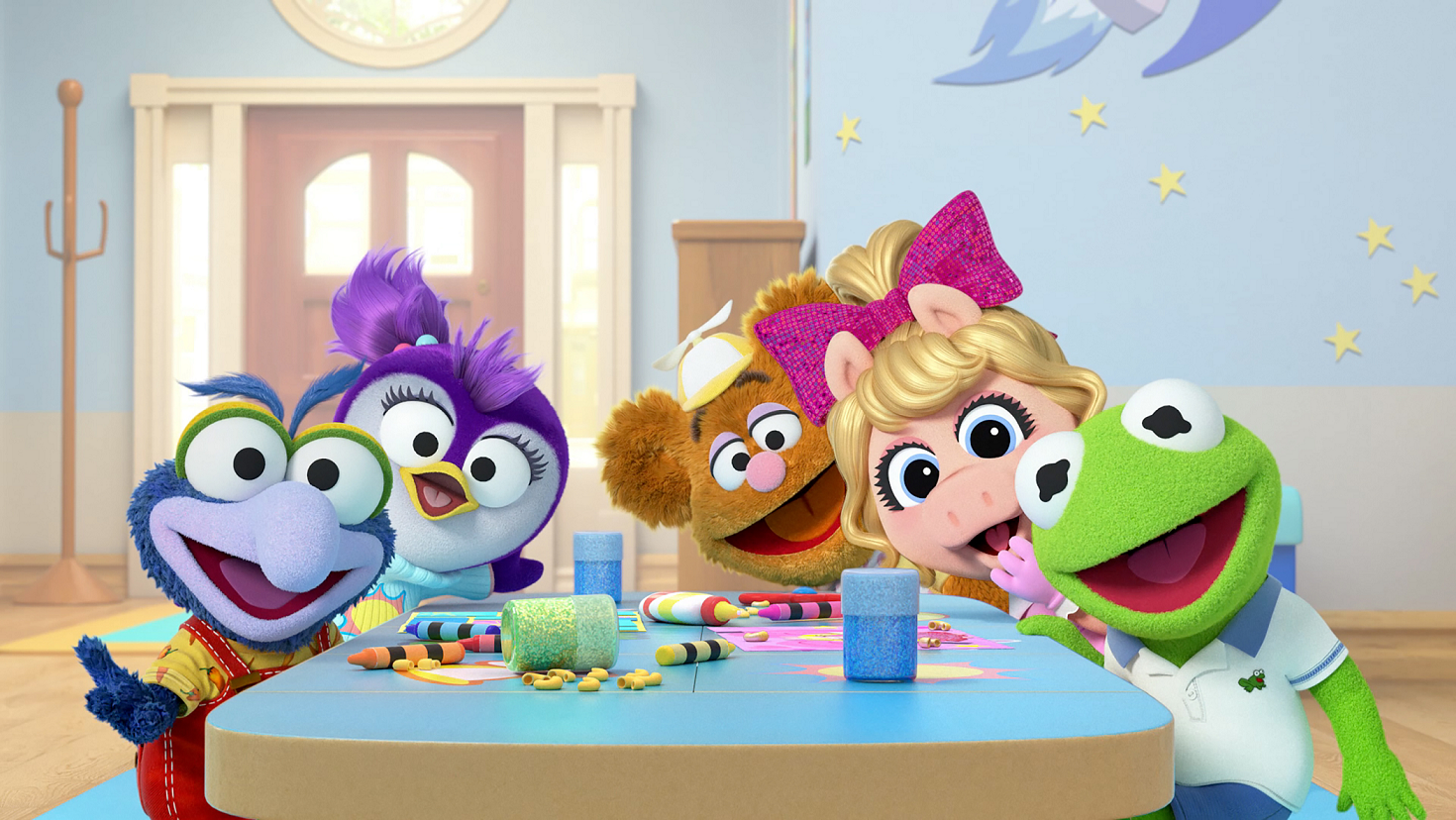
AV: “Let’s talk about influences. Andy said he didn’t look towards the original series for inspiration, but rather The Muppet Show. Where else did you go to find creative inspiration?”
Andy: “Well, when they bring us aboard, the script is being written and they haven’t recorded the voice acting yet. So the most important influence is to make sure you’re ‘on story’ within the realm of the characters. And that’s sort of where we have a little bit of an advantage here in that, when you need to write a song about Gonzo for Fozzie the Bear, they have like a 40 or 50 year history behind them, so you sort of have a general sense of what is appropriately ‘Muppety.’ And that was sort of my guidebook at all times, to honor the story, to honor the show, honor the theme of what was happening, but at the same time to make sure to honor the Muppet tradition and not do anything that’s too ‘far field’ for those characters.”
Keith: “And by the time I came on, Andy had already pretty much established that as sort of the cornerstone of balance. And it was really respectful to the original Muppet Show.”
AV: “Do you write songs for every episode?”
Andy: “Every half-hour episode is two eleven-minute stories, and every full episode has one to four songs. So I’d say on average it’s one or two songs per episode.”
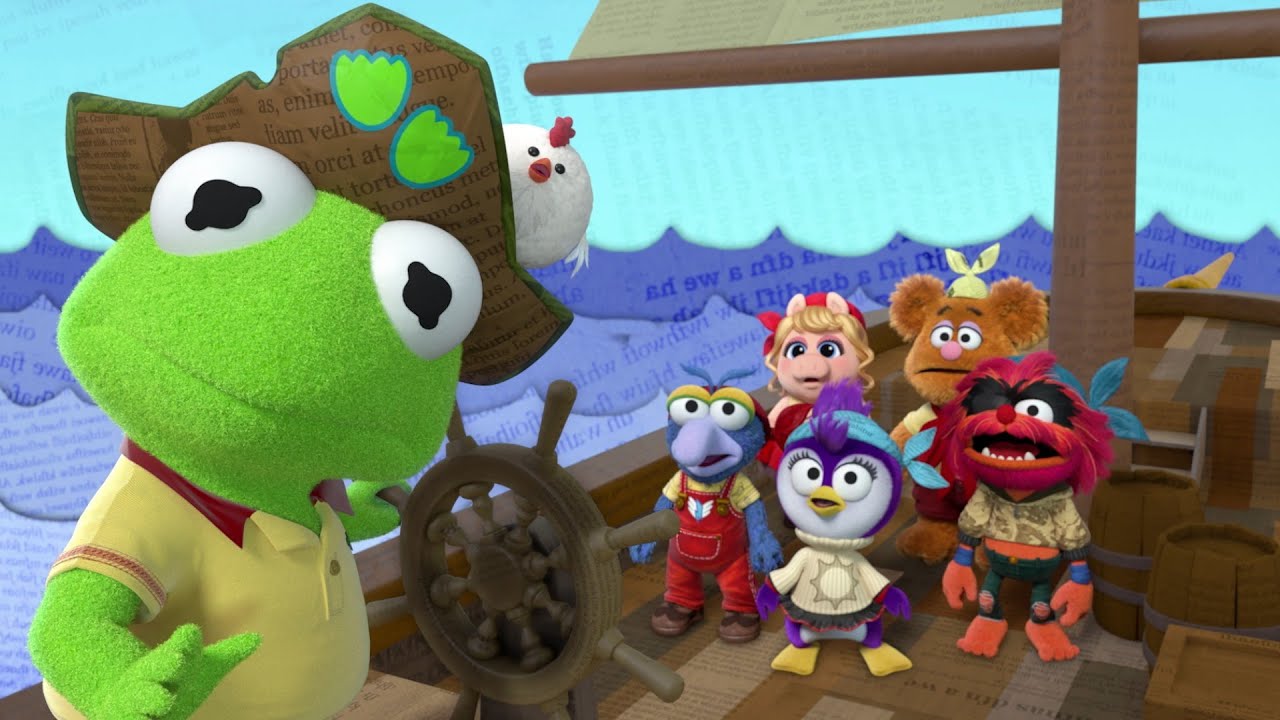
AV: “If you look at modern children’s television today, everything from My Little Pony to Disney’s own The Lion Guard is doing pretty sophisticated things with how they use various musical genres. How did you use musical genre on Muppet Babies?”
Andy: “You know, the fun thing about Muppet Babies is that it’s about imagination. About two minutes into each episode, there’s the ‘rainbow imagination’ signature thing, and then they’re in their own imagination world. And what that means is a lot of different genres. So the genre is driven by what’s happening in the story. For instance, in one episode, Miss Piggy plays a disco superhero, so she gets a big disco song. They play pirates in one episode, so there’s a pirate shanty to go along with them. There’s sort of a noir detective sequence, and there’s a song to go along with that. So most of the genre choices were driven by those. But when it wasn’t driven by a specific genre, then it was returning to what I talked about before, which was The Muppet Show and the Muppet movies pallet, not trying to fall into a ‘period’ like the 60’s or 70’s or 80’s or anything like that, but still definitely inspired by that.”
AV: “Let’s talk about Summer, who’s a brand new character. Unlike the other Muppets, who are pop culture icons, Summer is a fresh face. Did that make her easier or harder to write for?”
Andy: “You know, for Summer, for writing songs for her, for finding her voice, that was more akin to starting a new show than it was working on a reboot. It took a little while to find out what she would sound like, what her approach to singing was, and luckily Jessica DiCicco, who plays Summer, is a great singer, has a great voice, and there were sort of no restrictions on where we could go. She’s a very sweet character, and so a lot of her featured songs are some of the sweetest of the season.”
Keith: “And Summer is very positive and optimistic, and some of the songs Andy had written for her were kind of stunning and bright, and I certainly tried to follow up in the best way I could working with that. She was sort of harder than the other ‘brand name’ original characters, in which you have such a big history behind each one of them. They pretty much had an established sound already. So it was a little difficult (for Summer), but I think we figured it out.”
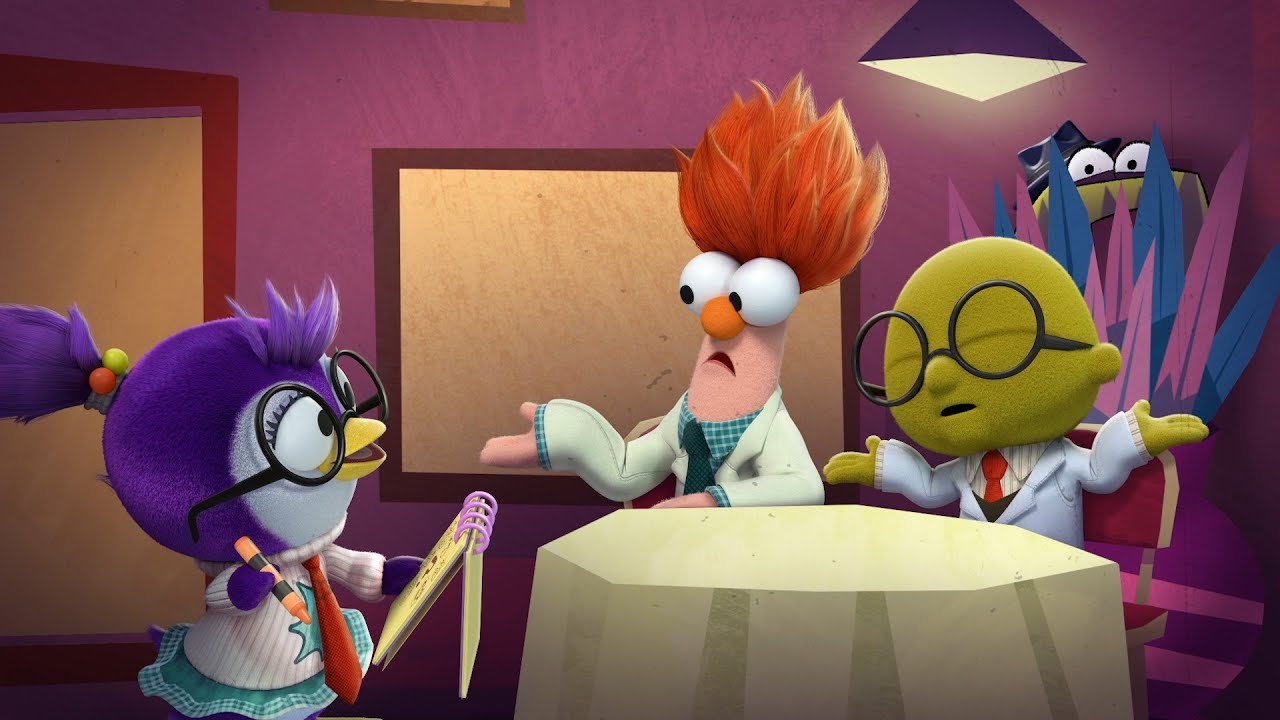
AV: “On an average episode, what is the typical process of working for you two?”
Andy: “Well, songs, like I was saying, I guess that would be the script phase. That’s a couple of weeks before the voice recording schedule where they do the dialogue. They give me the “briefs” for the songs, which is just a little blurb in the script (saying to) ‘write a song for these characters about this sort of thing.’ Then I take the music and lyrics, and then I go to vocal to record all the actors, and then I go through a long process of recording live players and things to produce the tunes well before we even get it to post. And then when we get to post, we all sit down and watch the episode together, we get notes from the creator, and then (I’ll pass it onto Keith).”
Keith: “And then about nine months after Andy writes the songs, by the time the episode is locked and all of the timings are in place, I finally get the final cut, and then I have about two weeks to work with around twenty minutes of footage. Andy has usually covered two or three minutes already with the songs, and because it’s usually ‘wall-to-wall,’ I just have to fill in ‘all the gaps’ and finish the rest of the story as best as I can.”
AV: “Do they always tell you where they want the songs in the episode, or do you ever get to come up with that on your own?”
Andy: “They usually have a scene in mind for us to work with in the script. I usually write them (the songs) at about a minute or a minute and a half, or they get shortened depending on what they need once they start doing the animatic and ship it overseas for final animation.”
AV: “From an animation standpoint, this is such a bright series. It’s so colorful and vibrant, and I wondered if that had any influence on how you two do your work, or if you didn’t even know how the show would look before you got started?”
Andy: “For songs, you know, I had seen some test footage so I knew what it was roughly gonna look like. But also, (when Keith) gets the episodes to score, they’re usually close to final animation…”
Keith: “It’s not absolutely complete. The timings are final.”
Andy: “But I know what you’re talking about, actually. The show just really pops, though it doesn’t affect my end much. I’m not sure if it affects (Keith’s).”
Keith: “Yeah, on my end, I’m paying attention to the performances of the voice actors more than anything else. If I am influenced by the color, by the color palate and the brightness of it, then that would sort of find its way into the orchestral colors subconsciously, I think.”
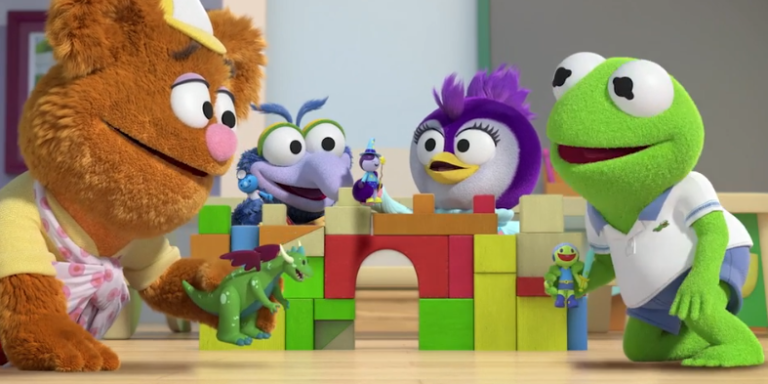
AV: “What’s it like to write the songs for the different characters? Like do you have to get in a ‘Kermit the Frog mode’ when you write for Kermit or a ‘Miss Piggy mode’ when you write for Piggy, or is it easier than that?”
Andy: “Writing songs for characters generally I enjoy, in that you get to put your head in a different state. Luckily, I do passable imitations of most of the Muppet characters, so I’ll just like be thinking of myself as Kermit on a banjo, and all of a sudden I’ll be singing like a pigeon to myself as I’m writing the songs. So the difficult process was figuring all of them out, plus guest Muppets, who had to have a six way vocal harmony to them. It’s sometimes challenging because it gets pretty complex pretty quickly.”
AV: “Okay, before we wrap this up, we gotta know: who are your favorite Muppets?”
Andy: “Mine are Gonzo and Animal.”
Keith: “It’s hard for me to pick one, but I’ll have to go with Gonzo.”
AV: “Andy and Keith, thank you both for your time!”
Check out the new Muppet Babies Soundtrack Album on Spotify!
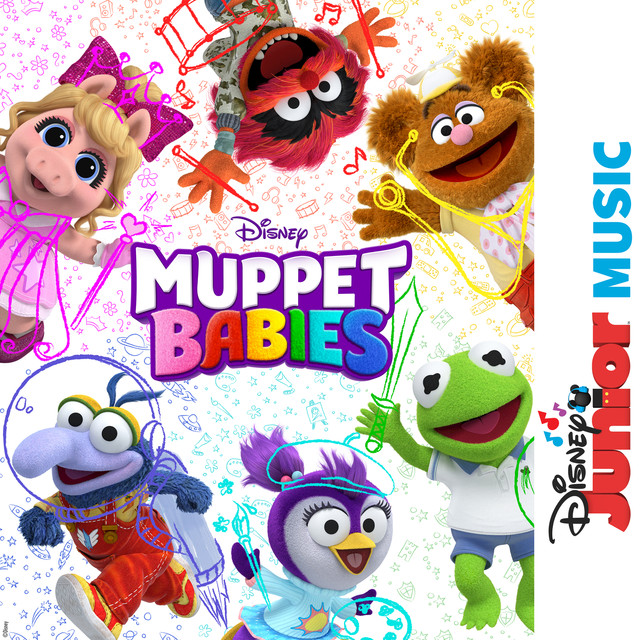
.


